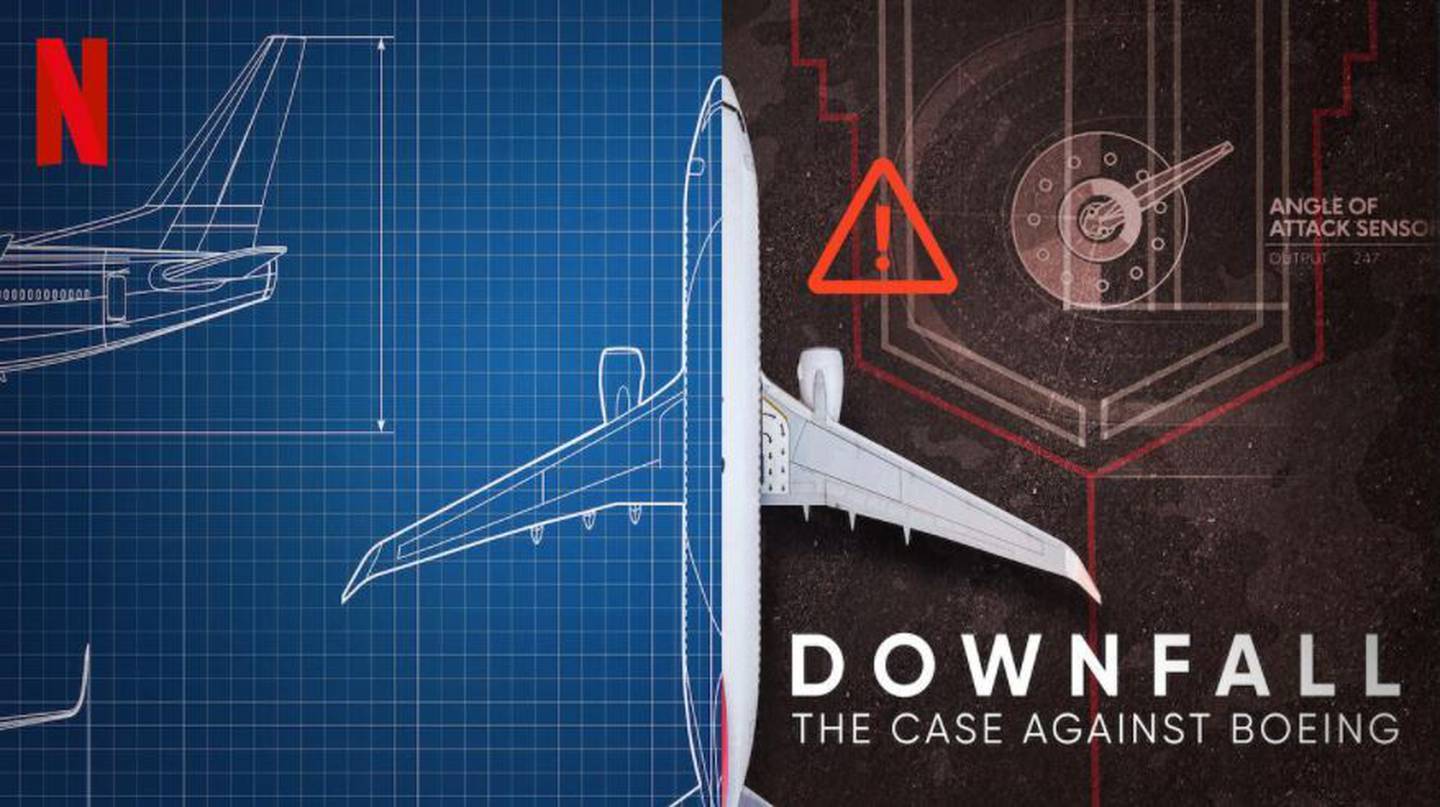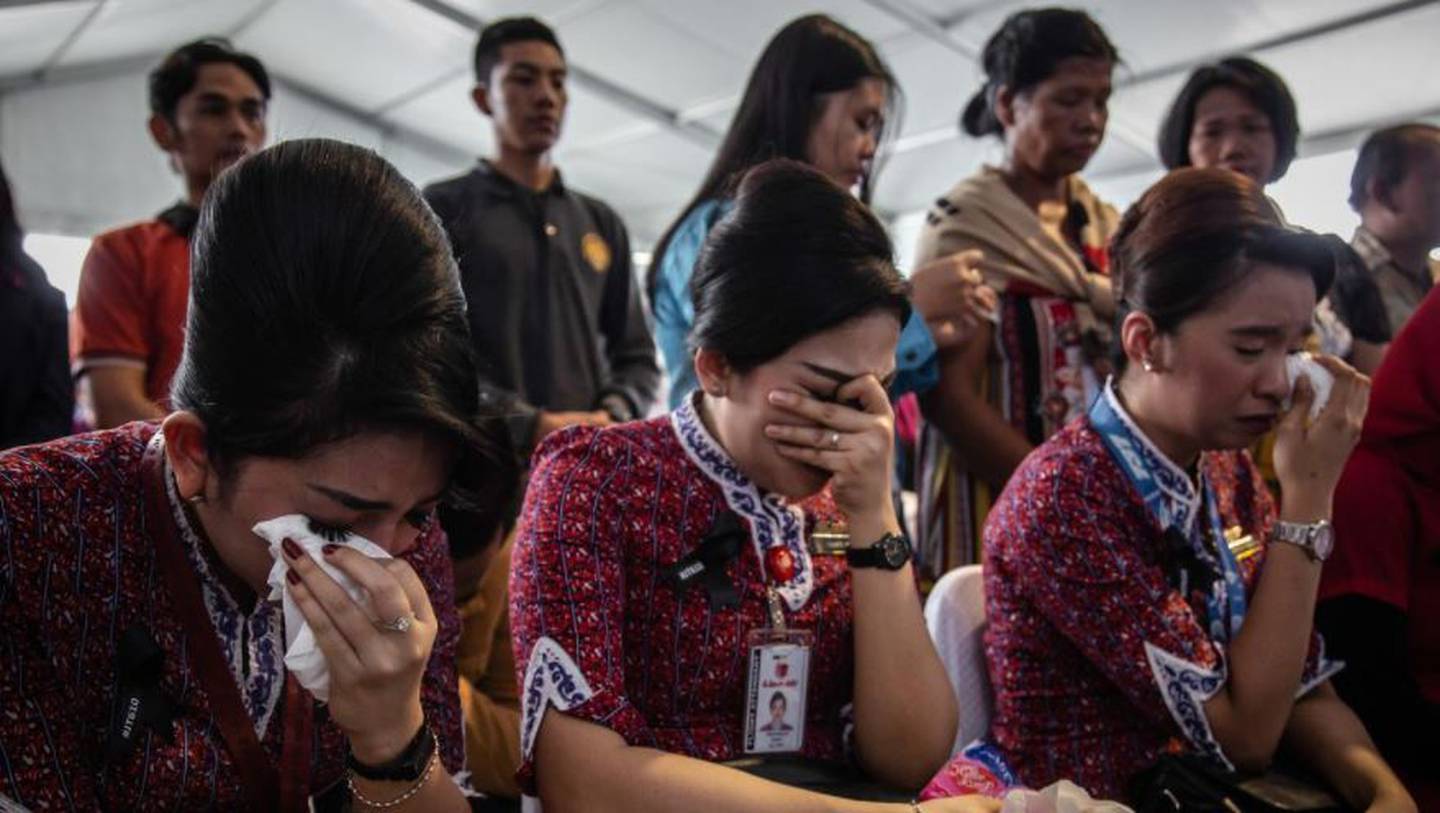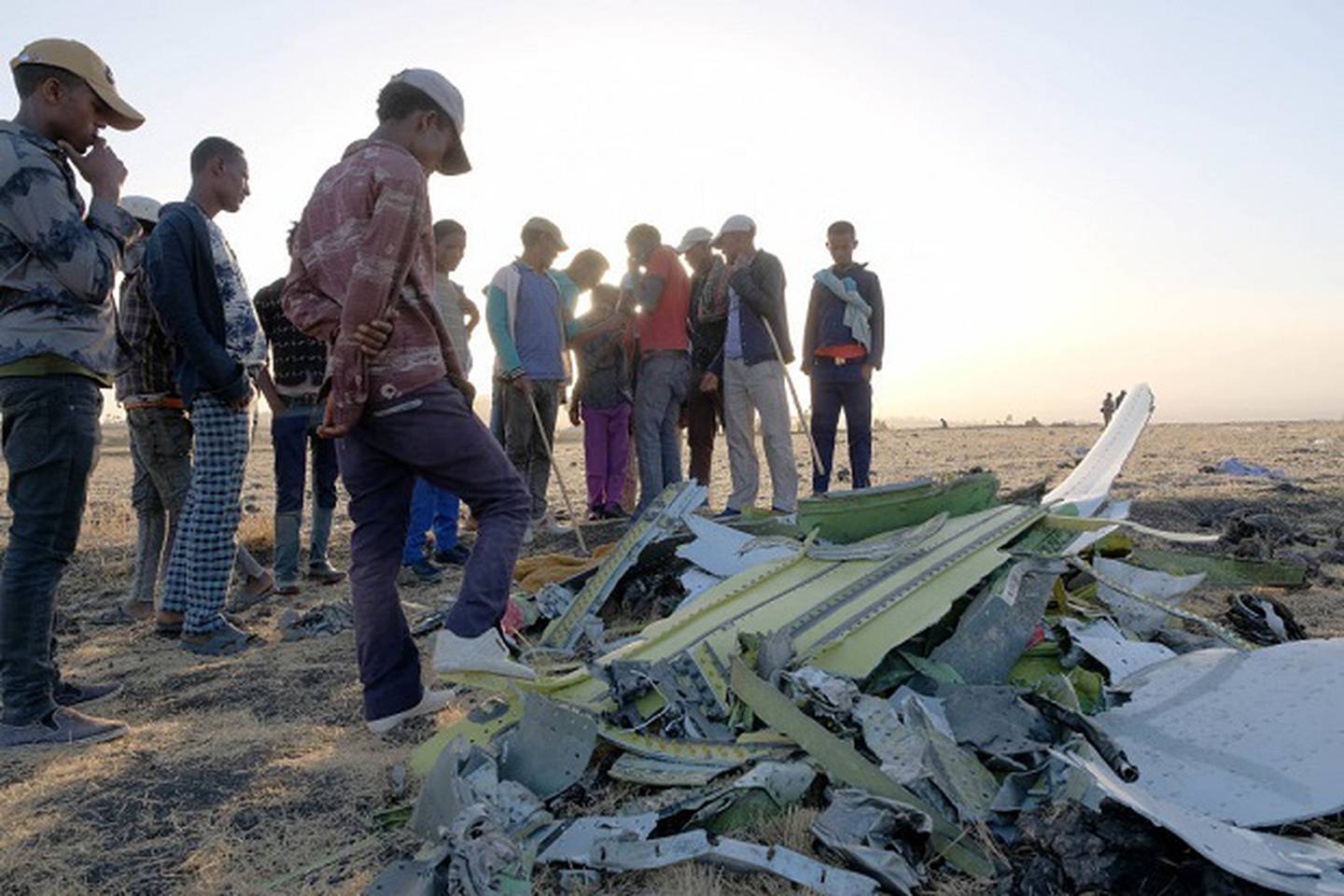
"If it ain't Boeing, I ain't going."
This famous slogan reflected the absolute trust that passengers and flight crew around the world had placed in airline manufacturing giant Boeing for many years.
The iconic company, created in 1916, introduced the commercial jet that made flying affordable for most people and for many years was the most popular supplier of aircraft to airlines around the world.
Most of us have who have flown have been on a Boeing plane. At any minute there are around 10,000 Boeing planes in service in more than 150 countries around the globe.
But that trust was shaken when two planes fell out of the sky killing hundreds, within months of each other.
The circumstances around the crashes are explored in a Netflix documentary called Downfall: The Case Against Boeing. It could change the way passengers feel about flying, with allegations of profits being put above passenger safety.

Downfall: The Case Against Boeing is on Netflix.
The description of the documentary by Rory Kennedy sums it up: "Investigators reveal how Boeing's alleged priority of profit over safety could have contributed to two catastrophic crashes within months of each other."
Expert opinions, cockpit recordings, interviews with loved ones of the victims and documents from regulatory bodies are used to make the case against the aviation giant. Among the experts interviewed were ex-Boeing engineers, congressmen and outraged pilots including disaster-averting hero Sully Sullenberger.
The two plane tragedies explored in the documentary are that of Lion Air Flight 610 which crashed in Indonesia in 2018, killing 189 people, and Ethiopian Airlines Flight 302 which claimed 157 lives when it crashed in Ethiopia.
What was extremely shocking was they were both brand new planes, the 737 Max.
Jon Ostrower, Editor in Chief of aviation publication The Air Current said: "Two crashes of brand-new aeroplanes within five months of each other, that doesn't happen in modern aviation."
When the Lion Air plane was downed, initially there was a lot of finger-pointing and the heat was turned on the pilots. Nobody could believe the brand-new plane could be the problem.
Garima Sethi, the wife of Lion Air pilot Bhavye Suneja, said: "There was a blame game going on, blaming the country, blaming the airline, blaming the pilots."
Eventually, the truth emerged that the 737 Max had a design flaw, and Boeing worked on a fix but it was not completed in time to save the Ethiopian Airlines plane that crashed just months later.
The design flaw involved the new Manoeuvring Characteristics Augmentation System (MCAS), an automated safety feature designed to prevent the plane losing lift or entering into a stall.
Even more shocking was the fact that pilots hadn't been trained in the new system.
Captain Sullenberger said: "Finally Boeing released a statement saying it looks like the Lion Air plane had an erroneous MCAS activation. And all of us went, what's an MCAS?"
Richard Reed, US Federal Aviation Administration Systems Engineer was also shocked: "Say what? That was my response. What. How the heck could this happen?"
Andy Pasztor, former Aerospace Reporter for The Wall Street Journal, said it was a major oversight by Boeing: "Everyone was completely flummoxed and surprised when they found out Boeing had never told pilots that the MCAS system was on the aircraft."
Shockingly, a Wall Street Journal investigation claimed that Boeing had withheld that information on purpose, saying a senior source had confirmed pilots weren't told so not to "overwhelm" them.
Along with the shock of finding out there was a new addition on the planes that most pilots hadn't been informed about, Boeing later claimed that pilots should have been able to take action if the MCAS was acting in error.

Families and colleagues of victims of Lion Air flight 610 cry on deck of Indonesian Navy ship KRI Banjarmasin during a visit to the site of the crash. Photo / Getty Images
"We shouldn't expect pilots to have to compensate for flawed designs," Captain Sullenberger said. "These crews would have been fighting for their lives in the fight of their lives."
As the probe continued Boeing was accused of ignoring the families of the Lion Air crash victims in their search for answers.
Then, while Boeing was working on a fix for the design flaw, a second plane fell from the sky in a hauntingly similar way.
"Just the idea that within five months the same plane, a new plane, went down in eerily similar circumstances – close to the airport, relatively low altitude, not bad weather, all the obvious reasons planes would crash …" Mr Pasztor said, noting the world was in shock.
Meanwhile, Captain Dan Carey from the Allied Pilot Association said: "this is a sudden, violent and terrifying event."
However, initially Boeing wouldn't publicly consider they were at fault, with former CEO Dennis Muilenburg insisting "safety is at the core of who we are at Boeing".
The company also issued a statement saying: "We have full confidence in the safety of the Max."
Instead, they again tried to blame the pilots. They acknowledged the MCAS had misfired but said the crew didn't completely follow procedures.
It was later revealed the Ethiopian crew had in fact realised MCAS was the problem and had tried to do what Boeing had asked them to do and turned off the MCAS system but the plane was going too fast and they couldn't recover the plane manually.
While the world was shaken by the second Max crash, the FAA didn't immediately jump into action, saying it was waiting for data before deciding on grounding the planes.
However, the day after the Ethiopian Airlines crash, China grounded their Max aircraft, and other countries followed, including Australia.
Former US President Donald Trump later decided to ground the planes after a piece of evidence was found from the Ethiopian Airlines crash site.

The crash site of Ethiopian Airlines flight ET302, in 2019 in Bishoftu, Ethiopia. Photo / Getty Images
Then, it emerged that after the first crash of the Lion Air plane, the FAA had conducted a Transport Airplane Risk Assessment Methodology to assess the risk of another crash. It wasn't released to the public at the time but it was given to Boeing.
Michael Stumo, father of Ethiopian Airlines crash victim Samya Stumo, said of the analysis: "They predicted without a fix there could be 15 more crashes in (the plane's) life."
Mr Pasztor said: "They projected there could be as many as one fatal crash every two years of a Max. That would make the Max the most dangerous modern jet ever built.
" … The most disturbing part of the story (is) Boeing did the minimum. They were betting that the problem would not recur before a permanent fix could be implemented. And of course, that turned out to be a fatal mistake.
"It's a horrible, horrible story."
Peter DeFazio, District of Oregon Court, Transport and Infrastructure Committee Chair agreed: "In the 21st century to lose two planes within months of each other and kill so many people it should never ever have happened.
"The safety culture at Boeing fell apart. It was corrupted from the top down from pressures from Wall Street."
Mr Muilenburg resigned two months later at the request of Boeing's Board of Directors.
The Boeing 737 Max was grounded for 20 months, while the MCAS system was revised.
In November 2021 the FAA approved the plane to return to the air after the MCAS was rectified and pilots trained.
Boeing issued a response to the documentary makers saying: "Boeing asserts that no governmental or regulatory review has found that production conditions in the Max factories contributed to the accidents."
- by Kate Schneider, news.com.au
Take your Radio, Podcasts and Music with you









